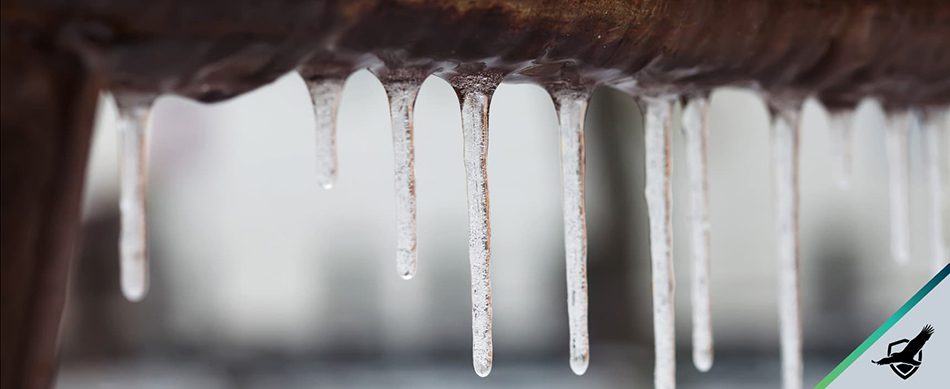How to Prevent Frozen Pipes

The words “frozen pipes” can strike fear into the heart of any homeowner. Why? Freezing water puts excessive pressure on pipes which can then burst, releasing a possible torrent of water in your home. Even after repairing and cleaning up after a burst pipe, your home is at risk for mold, mildew, and rot.
The obvious solution is to prevent frozen pipes in the first place. Preparing your pipes should be a priority in getting your home ready for winter weather. But not all of your pipes are at risk. Exterior pipes, outdoor faucets, and pipes without insulation or in unheated areas of your home have the biggest chance of freezing.
There are several steps you can take to prevent frozen pipes, most of which are easy undertakings for any homeowner.
Take care of outdoor water hoses and faucets first.
Drain your hose, detach it, and store it indoors for the winter. If you can, shut off the water source to any outside faucets, then turn the faucets on to empty the pipes of any remaining water. Cover your outdoor faucets with an insulated cover.
Use foam insulation
For indoor pipes in cold areas of your home, wrap the pipes with foam pipe insulation. Hope Plumbing, of Indianapolis, IN, suggest using heat tape, which can help keep your pipes warm in freezing weather.
Leave your faucet dripping.
You may already know to leave your faucets dripping during a freeze, but did you know why? The Family Handyman says that besides the flow making the water less likely to freeze, a small trickle also helps prevent a buildup of pressure. So even if your pipes do freeze, that little flow of water can help prevent a crack.
Open your cabinet doors.
Popular Mechanics points out that a lot of your plumbing may be along uninsulated outer walls. Opening your cabinets and letting warm air into the space underneath your kitchen and bathroom sink can help keep the water in those pipes from freezing.
Keep the heat on.
Leaving your heat at 55 degrees or warmer at night or whenever you aren’t home is also recommended. Turning your heat down below that puts your pipes at risk of freezing and bursting. The cost of heating your home is worth it compared to the cost of fixing burst pipes.
What to Do If Your Pipes Freeze
If you turn on your water, and you only get a small drip, or worse, nothing at all, there’s a good chance you have a frozen pipe. Make sure you know where your main water cut-off valve is in case a pipe does burst. The Chicago Tribune points out that a pipe with even a “tiny crack can unleash 250 gallons of water in a day.” If the frozen section of pipe is exposed, you can usually locate it by looking for frost or feeling for, especially cold sections.
This Old House recommends turning on your faucet and using a hairdryer or space heater to thaw the frozen section. They also advise against using a propane torch or other open flame, as that could boil the water in your pipes and cause a crack. Also, be aware that you could have more than one section of the frozen pipe. Atomic Plumbing & Drain Cleaning in Virginia Beach, Virginia notes that “if one pipe is frozen, others might be, as well.”
If your frozen pipe is behind a wall, ServiceMaster Professional Services recommends that you turn up the heat in your home or use a heat lamp to warm the area where you think the pipe is frozen.
Once your water begins flowing, allow your faucet to run for a few minutes to clear out any remaining ice. The Home Fixers also recommend checking the water line for leaks, and calling a plumber if you notice one.
What to Do If Your Water Pipe Bursts
If you take steps to prevent frozen pipes but you’re still faced with a crack, turn off the main water valve right away. Top Notch Heating, Cooling, & Plumbing, of Kansas City, MO, says to also turn off the electricity in that area of your home to prevent electrocution.
Once you have the damage contained, call your plumber, then clear the area near the break if it is safe to do so. The more you can limit any damage, the less you’ll have to deal with the headaches of repairs.







